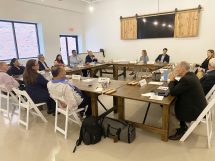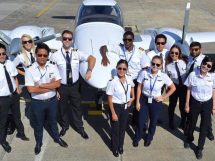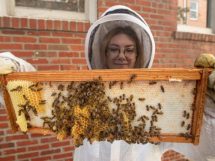Free lectures scheduled for Thursday and Saturday night
LEXINGTON, Ky. (July 23, 2014) — Seventeen participants will bring their passion for the liberal arts to Transylvania University this week for the “Twenty-First Century Liberal Education: A Contested Concept” seminar.
The ninth annual event will draw participants from top institutions, including Earlham and Skidmore colleges and Washington and Lee University. Beginning Thursday, the four-day seminar will address a range of pressing issues, such as the future and purpose of liberal education.

The public is invited to attend free lectures on Thursday and Saturday—at 8 p.m. both nights in the Cowgill Center room 102.
J. Scott Lee, executive director of the Association for Core Texts and Courses, will give the first talk, “Cultural Institutions, Theater, and Humanistic Liberal Arts Education: Rethinking Where We Can Go From Here.”
Professor Sarah Stanbury, with College of the Holy Cross, will present the weekend public lecture titled “Things of the Past: Medieval Objects and the Liberal Arts.”
Michael Bell, vice president and dean of the college, said: “I am delighted that Transylvania is once again able to bring such a distinguished community of scholars together to engage with the theory and practice of the liberal arts. Those arts and the thinking they sustain are, I think, essential to our ability to function as responsible citizens in a democratic society.”
The seminar—sponsored by the university and its Bingham Program for Excellence in Teaching—draws higher education faculty from across the country through an extremely competitive application process. Past participants have come from colleges such as Bryn Mawr, Williams, DePauw, Mount Holyoke, Rhodes and Smith.
Retired Transylvania professor Jeffrey Freyman and professors Melissa Fortner and John Svarlien coordinate the seminar.
“The university’s willingness to promote liberal learning at this high level is clear evidence not only of our commitment to the promotion of sustained critical inquiry but also our belief that such inquiry enhances our understanding of ourselves, our professions and our larger world,” Bell said.




















Add Comment